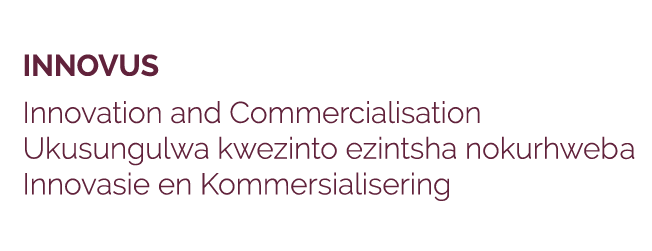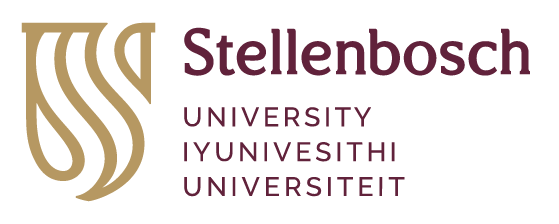Stellenbosch University's microbiology department produced most spinout companies
Something is surely brewing in the drinking water of the Department of Microbiology in Stellenbosch University’s Faculty of Science, and it contains elements of entrepreneurship, passion, drive, innovation and creativity – with proven evidence of strong leadership that inspires.
This “micro” department produced more spinout companies than any other department at Stellenbosch University. It is the birthplace of four spinout companies, Biotikum, Fluorobiotech, Immobazyme and Urobo Biotech, with two more in the pipeline, BioTrac and Sporatec – all of which emerged from the passion and dedication of the team of nine academics (the research group leaders) and ten support staff members, in collaboration with sixty postgraduate students (15 honours, 37 masters, 12 doctoral) and 10 postdoctoral fellows.
From 2015 to 2022, a total of 34 PhD, 51 MSc and 107 Hons degrees have been awarded. In addition, the nine microbiology researchers have registered 44 patents, published 346 scientific research papers and 11 book chapters. Notably, Cipla commercialised one of their patents, the well-known Entiro Probiotic, which is growing its market share among novel solutions (products) to current medical challenges.
This small group also secured research contracts totalling almost R60 million over this period. The bulk of these contracts – to the value of R36, 3 million – were secured in 2022 alone, ensuring that they continue with competitive research in the international scientific arena.
Leading the Microbiology team is Department Chair Prof. Alf Botha, who is – according to him – “merely taking care of the admin”.
“That is all but true,” says Anita Nel, Chief Director, Innovation and Commercialisation. “It is leaders like Alf who keep building on the solid foundation laid by visionary researchers like Prof. Leon Dicks and Prof. Emile van Zyl, and who keep inspiring and motivating researchers to deliver world-class research with groundbreaking applications.”
“What you see here is the result of two decades of research by eight independent laboratories with a strong focus on applied research that have moved closer and closer to industry over the years. Despite being independent, sustainable entities, the labs collaborate effectively, sharing knowledge, technology and ideas,” says Prof. Botha.
For him, the biggest advantage of working closely with industry is that they develop real solutions that also ensure continuous funding for research. Their long list of industry and funder partners includes Cipla, the Department of Science and Innovations, FirstRand Foundations, the Global Challenges Research fund, the World Health Organisation, Fraunhofer Alliances, FirstRand, the Water Research Commission. “We also tap into our global network of collaboration on every continent in the world,” says Prof. Botha.
“All our articles are published in international, reputable scientific journals. We always measure ourselves against the best in the world, and we stood the test of time. This is evident when one considers the impact factors of the journals in which some of the findings were published. Impact factors of 8 or 10 are not uncommon, whereas the average microbiology journal impact factor is around 2. Our articles are mostly published in journals focusing on biotechnology, environmental sciences and applied microbiology,” said Prof. Botha.
He also paid tribute to Prof. Leon Dicks, the late Prof. Doug Rawlings and the recently retired Prof. Emile van Zyl , who made huge strides in research and paved the way for a move closer to industry. “These academics left a legacy and laid the foundation on which our research groups are now building.”
He is extremely proud of this team. “I realised my team was exceptional during COVID. This team works tremendously hard, producing unbelievable results. We teach, do research and raise money – all to attract the best talent in students and staff. This is a dedicated team par excellence, for sure.”
The eight labs
Prof. Botha said their department does research on basic and applied microbiology regarding molecular biology of yeasts, microbial ecology of soil and water, biology of lactic acid bacteria and probiotics, interactions of opportunistic pathogens, production of high-value molecules using synthetic biology and biosensor development, in collaboration with SU’s engineering department.
The eight microbiology laboratories are:
Prof. Wesaal Khan’s Water Resources Lab specialises in developing innovative water treatment and monitoring methods to be used by under-resourced communities across Africa, whereas Prof. Gideon Wolfaardt’s lab focuses on the microbiology and chemistry of large freshwater bodies. Dr Trudy Jansen’s YeFuBi Lab specialises in the stress response of Saccharomyces cerevisiae and production of high-value proteins. Similarly, the lab of Prof. Marinda Viljoen-Bloom focuses on the production of recombinant proteins in yeasts for commercial purposes, while Dr Heinrich Volschenk lab uses synthetic biology to design and produce enzymes and proteins. Prof. Leon Dicks investigates novel solutions to current challenges in medicine, and Prof. Karin Jacobs studies microbial ecology to meet the challenges facing modern agriculture. Prof. Botha’s lab studies the interactions between yeasts and their biological, chemical and physical environment.
This team of scientists – each operating as an independent unit, while collaborating and sharing knowledge and technology – is one of Stellenbosch University’s top departments.
About the spinouts that originated in the Department of Microbiology
The three established spinouts are:
Biotikum
Biotikum provides microbial additives (probiotics and enzymes) to the agricultural industry to promote sustainable farming. The spinout also provides microbial production services to the African continent.
Fluorobiotech
Fluorobiotech focuses on revolutionising protein production in Africa by developing cutting-edge solutions to produce high-quality, cost-effective recombinant proteins. Utilising advanced patent-pending E. coli technologies, the team has developed a highly efficient and scalable production process that allows them to effectively produce a wide range of recombinant proteins locally.
Immobazyme
Immobazyme provides growth factors for the cultivated meat industry, enzymes for the sugar industry, and works with companies seeking to enhance their products through biotechnology. By harnessing the potential of precision fermentation, this spinout assists businesses to achieve their sustainability goals while delivering high-quality solutions that drive growth and Prof.itability.
Spinouts in the pipeline
Urobo Biotech
Urobo Biotech is developing a technology that uses microbial enzymes to break down certain types of plastics – especially bioplastics – and potentially recycle them.
BioTrac
Biotrac developed a system that continuously monitors microbial fouling in industrial wastewater.
Sporatec
Sporatec provides a service to the agricultural sector by analysing the enzyme and microbial components of soils.
Innovus, Stellenbosch University
|
15 De Beer Street
Stellenbosch
7600
South Africa
|
PO Box 3135
Matieland
7602
South Africa
|
|
t +27 (0) 21 808 3826
e info@innovus.co.za
e forms@sun.ac.za |

